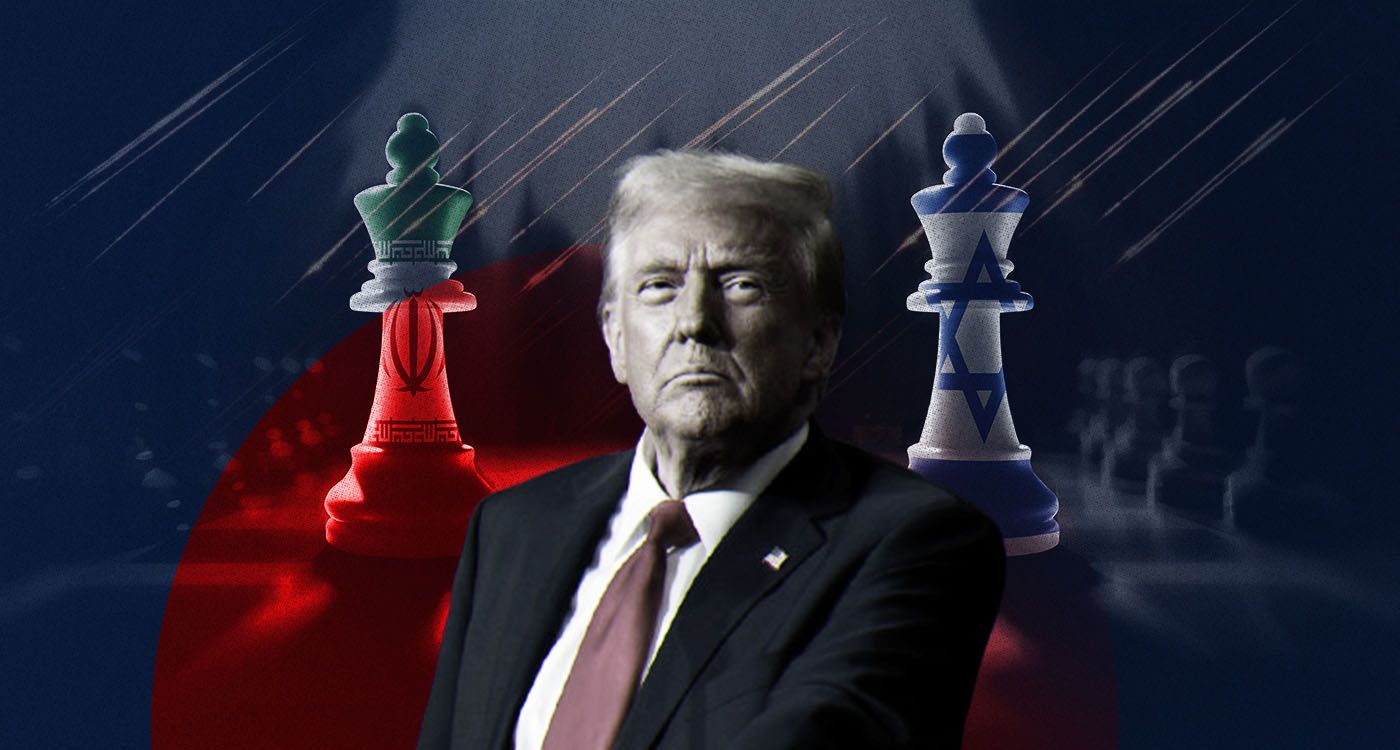- Home
- Middle East
- Is Trump's Posture in the Israel-Iran Conflict a Calculated Gambit?

©This is Beirut
As tensions escalate in the Middle East, a significant shift in US foreign policy under President Trump appears to be underway. Amid the growing tensions between Israel and Iran, particularly following Israel's aggressive military campaign against its adversary, President Trump faces a complex decision: to engage militarily in an already volatile region or to utilize diplomatic channels to steer a de-escalation.
Emerging abruptly from the G-7 summit in Canada, Trump stated he was focused on “something much bigger” than merely concluding a ceasefire. “We want an end, a real end,” he suggested, hinting at a vision for a more profound resolution to the conflict, potentially even by altering Iran's regime. Analysts have taken note of Trump's rhetoric, viewing his apparent willingness to consider military action as a significant shift in US strategy. His announcement that the US knows the location of Iranian Supreme Leader Ayatollah Ali Khamenei raised eyebrows among observers, signaling a potential shift toward confrontation.
As the Pentagon claims that its recent military buildup is defensive, experts argue that this positioning could serve multiple purposes, including potential support for Israeli operations. The ongoing conflict has led to a rising death toll—currently over 450 in Iran and 24 in Israel—prompting fears that it could spiral into a larger regional war. Israel's Prime Minister Benjamin Netanyahu has declared that the country will continue its offensive against Iran “for as many days as it takes.” This steadfast commitment raises questions about the potential for Israel to solidify its status as a regional hegemon.
Reflecting on Israel's military operations, David Schenker, former US Assistant Secretary of State and Senior Fellow at The Washington Institute, described them as “innovative and comprehensive.” He asserted to This is Beirut that these operations have significantly degraded Iran's military capabilities and emphasized that “it really looks like they've done their homework and had a novel and innovative battle plan,” showcasing decades of intelligence gathering that have informed Israel's aggressive stance.
The United States is grappling with its role in this complex dynamic, and experts underscore the risks associated with military involvement. Trump's unwavering focus on achieving a “real end” to the conflict mirrors his broader strategy of projecting strength to both allies and adversaries. As the situation unfolds, the global community is watching anxiously, fully aware that decisions made in the White House could have far-reaching consequences throughout the region and beyond.
In examining the complex interplay of power between Israel and Iran, Aaron David Miller, a seasoned US Middle East peace negotiator and senior fellow at the Carnegie Endowment for International Peace, told This is Beirut that Israel currently maintains “escalation dominance” over adversaries such as Hamas, Hezbollah and Iran. This dominance enables Israel to carry out targeted strikes on Iran's nuclear capabilities, conventional sites and ballistic missile inventory. Miller illustrates that Israel's strategy focuses on proactively mitigating perceived threats before they materialize.
While Iran's response to these developments has been described as “very limited and underwhelming,” Miller raises an essential question: Is Tehran unable to respond effectively due to Israeli air operations, or does it simply lack the capability to launch a significant barrage of ballistic missiles? This precarious position further complicates Iran's military and strategic limitations. Miller posits that the outcome of this standoff might lead to one of three trajectories: escalation leading to a broader conflict, a precarious resolution resulting from Israeli strikes or a return to the entrenched state of conflict reminiscent of the past two decades.
Central to this analysis is the question of US engagement in this charged scenario. Schenker and Miller suggested that the Trump administration would welcome Iran back to the negotiating table, albeit with limited optimism regarding the potential outcomes of such dialogues. The ideal scenario from a Trumpian perspective hinges on achieving a stance of “no enrichment” from Iran, a demand that Iranian officials have predictably resisted.
As tensions continue to rise, the unfolding dynamics of the Israel-Iran conflict underscore the complexities of military strategy, international diplomacy and regional power struggles. Trump's decisions in the coming days and weeks will influence the future of US involvement in the entire Middle East and shape the broader geopolitical landscape amid growing concerns over a potential escalatory spiral.
Read more




Comments